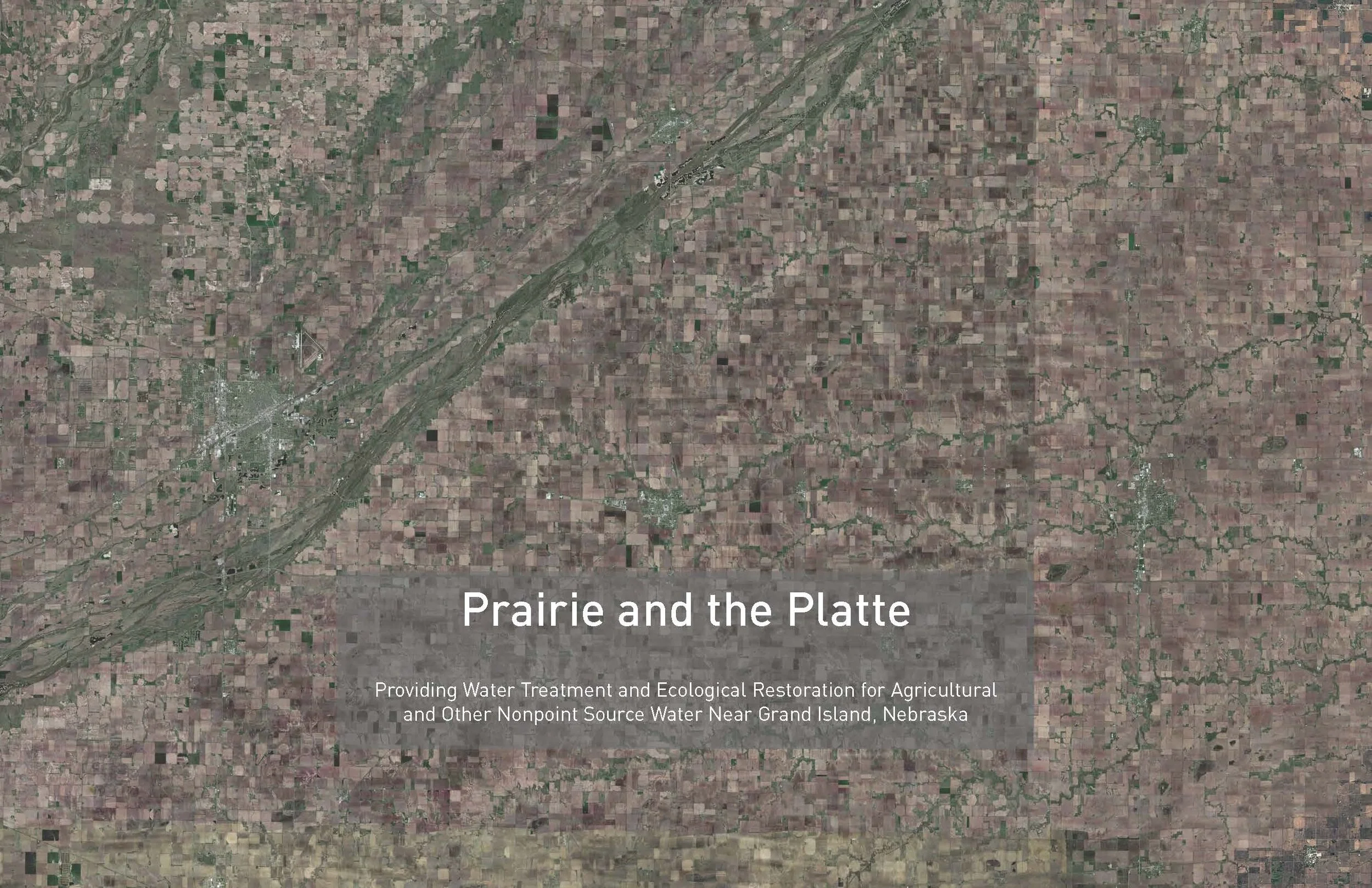Platte to Prairie
Connecting rural communities to the land through infrastructure
Spring 2020
Agriculture is the leading cause of impaired water quality in the United States. In Nebraska, farms and ranches make up 92% of the land. Over the past century and a half of agricultural use, disconnect has developed between people and the historic landscape of the Midwest.
An environmental interpretive center, community resource space and water purification facility, this proposal aims to reconnect those living in and around the city of Aurora, Nebraska with the native flora and fauna that created the rich, fertile soil necessary for farming today. Along with the implementation of ecological patches of replanted tallgrass prairie throughout the region, this project focuses on the incorporation of a water treatment plant with public space, native prairie remediation and a local agricultural resource center to provide services for farmers to better their water usage and drainage practices.
Located along the Platte River, the water treatment facility stretches along the southern riverbank, across from an existing nature park. Atop the treatment facility, the interpretive center extends out to the river and wetlands beyond, connecting visitors with the landscape and providing a viewing deck to the hundreds of thousands of migratory Sandhill Cranes who pass through the region each year.
Professors: David Miller, Claire Rennhack, Scott Wolf
As a resource, water from the Ogallala Aquifer and the Platte River is crucial to the success of both farming and natural flora and fauna in and around Aurora, Nebraska. To maintain healthy natural ecosystems and resilient farms/soil, further remediation strategies regarding water health and reduction in surface water pollution are necessary.
Sandhill Cranes Ⓒ Tom White
Collage study combining research on topics and elements important throughout the development of this proposal.
The current site conditions span from marshland along the Platte River to flattened farmland above with areas retained as prairie landscape due to the nature of the topography in the southeast corner of the lots.
Expanding beyond the water treatment facility and interpretive center, this proposal incorporates the implementation of various ecologically focused interventions in the landscape including observation decks, bird watching blinds and pathways to explore from the the restored tall-grass prairie to the Platte River.
The interpretive center and water treatment facility are a main intervention within a much larger remediation proposal across a variety of scales ranging from rebuilding the soil along the edges of farmlands with native plants up to full water treatment infrastructure. Acknowledging the cost and time burden associated with changing farming tactics and taking care of unused space around farmland, the functioning of this main intervention proposal aims to educate the public while providing resources to the local community with the goal of reducing any barriers towards remediation-focused activities.
Main Intervention:
Water treatment facility extends along the Platte River.
Visual cues from the water treatment facility below are extruded upwards through a covered pump-house and raw water cistern, facilitating public interaction and curiosity.
Public-centered buildings stretch out over the river and back towards the prairie.
A ramp flows around the raw water cistern, negotiating the space between private infrastructure and public accessibility while allowing visitors and up-close look at the water treatment facility.
Public volume is split by programming and relationship to the water vs. prairie.
Water treatment facility functioning.
Lower floor plan: water treatment facility
Upper floor plan
View down along water treatment facility, interpretive center, greenhouse and seed storage in distance.
View along pump house, seed storage and greenhouse out towards tall-grass prairie.
View back from greenhouse towards seed storage and interpretive center.





